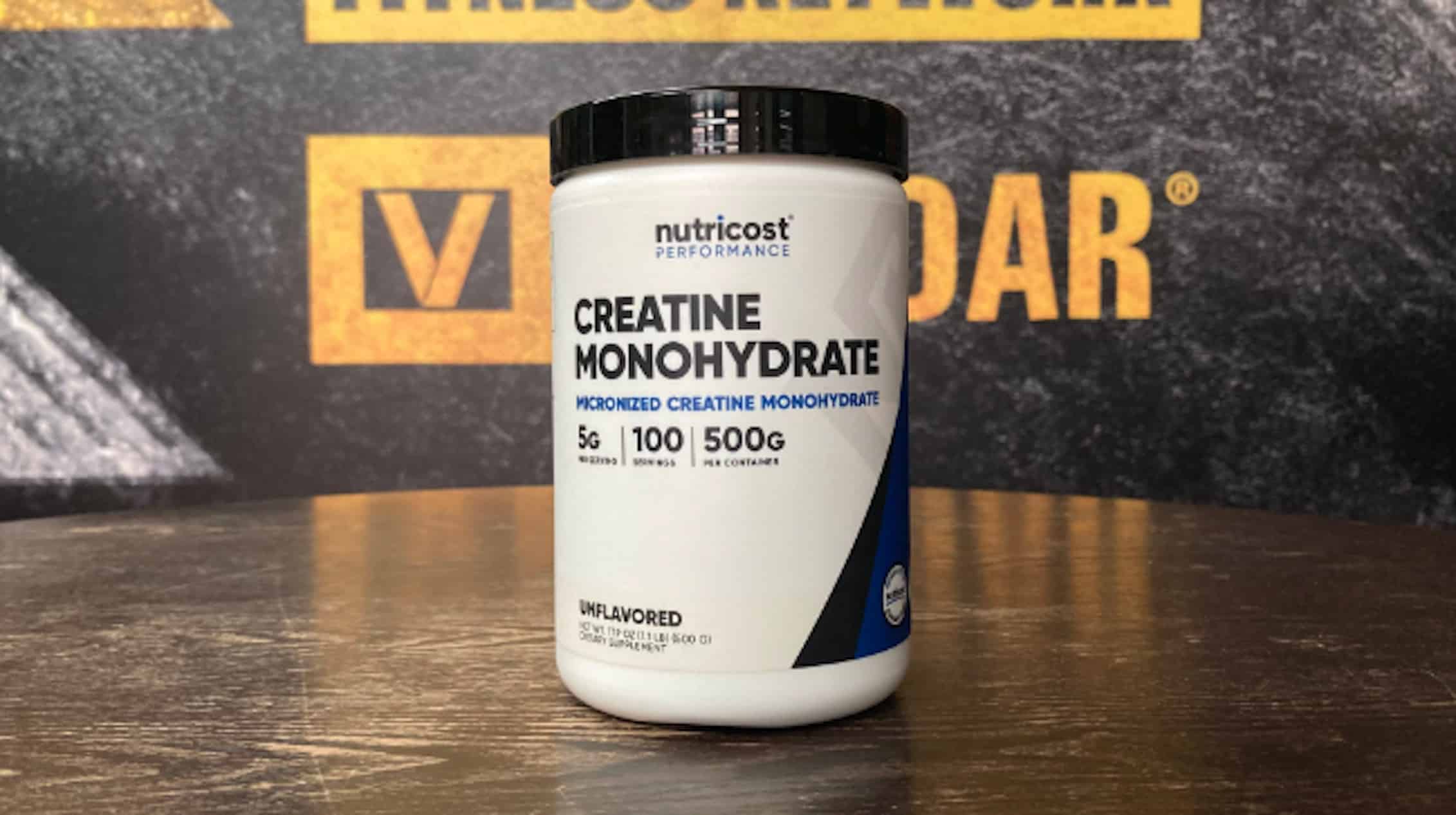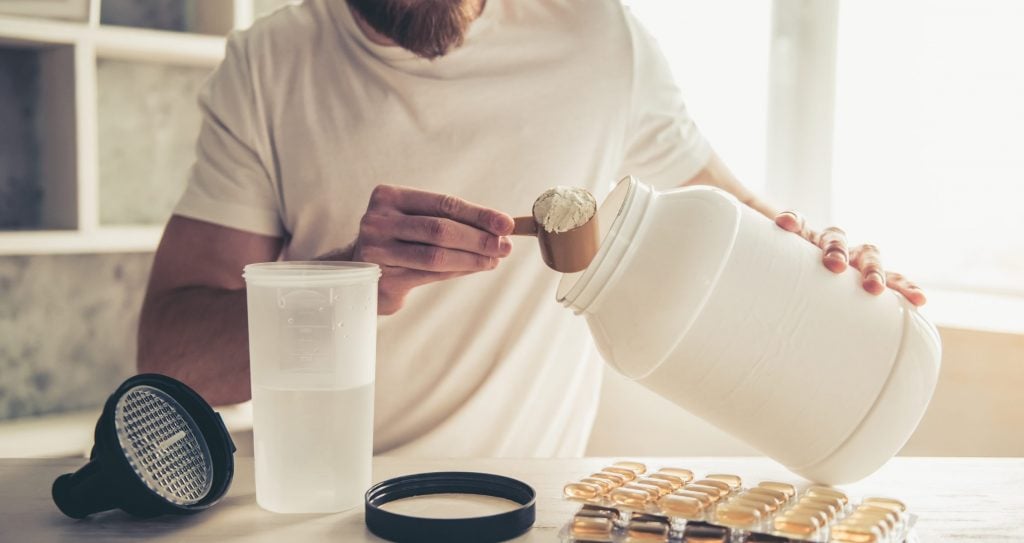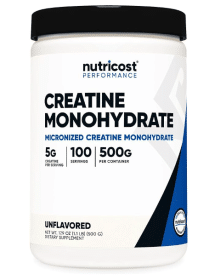Creatine hydrochloride has a sour taste compared to monohydrate.
Jeff Cavaliere, a seasoned physical therapist and strength and conditioning coach, has built a reputation for helping professional athletes and celebrities achieve peak fitness, enhance overall health, and elevate performance. As the creator and founder of Athlean-X, he offers science-based, innovative workout programs that deliver transformative results.
Recently, Cavaliere illuminated the role of creatine supplementation in bodybuilding and fitness. Weightlifters widely favor creatine due to its proven benefits for muscle growth and strength enhancement. However, debates persist over which form of creatine is most effective: creatine monohydrate or hydrochloride? Cavaliere addressed this topic, referencing multiple studies to support his perspective.
Below, we delve into his insights on creatine. But first, let’s take a closer look at what creatine is and why it’s so impactful.
Overview — What Is Creatine?
Creatine is a substance naturally found in the body that helps muscles produce energy, especially during resistance exercises. It’s a popular supplement for increasing muscle mass and improving exercise performance (1). Creatine is the most researched supplement and has been proven safe to use with so many benefits. The liver, pancreas, and kidneys produce creatine. However, you can also get it from seafood, fish, and meat.
However, it’s important to note that creatine supplements alone don’t build muscle. Incorporating resistance exercise and a proper diet, alongside creatine supplementation, enhances your muscle-building goals. Choosing the right creatine supplement for your lifestyle also plays a key role. Below are some benefits of creatine supplementation.
Benefits of Creatine

Helps the Muscle Cell Produce More Energy
You need energy for daily activities like running, jumping, and walking long distances. When you take creatine, the body converts it to phosphocreatine. The muscles store this phosphocreatine and use it to generate ATP for energy.
Build Muscle & Strength
Creatine is an ideal supplement for building muscle and strength in combination with a proper diet and an effective workout plan (2).
Helps with Recovery
During exercises and post-workout, you can get tired, and your muscles can get damaged. Research shows that taking creatine supplements can help improve your recovery time faster and reduce the effect of muscle damage (3).
Improves Cognitive Function
Creatine supplements have been shown to improve brain function. Taking creatine boosts your phosphocreatine stores to produce more ATPs, improving cognitive functioning.
Plethora of Health Benefits
Taking creatine can also help improve overall health. Studies have shown that it reduces the chances of heart failure for people who exercise without feeling tired. It also slows tumor growth, which can lead to cancer (4). It boosts the immune system to fight diseases and defects.
What Form of Creatine Is the Best?
According to Jeff Cavaliere, creatine hydrochloride is the most universal. He further explains that some people with gut issues from creatine monohydrate won’t find those issues when taking creatine hydrochloride.
“Creatine hydrochloride is the most universal in that the 10 to 15% of people that have gut issues from monohydrate won’t have those issues generally when they take the hydrochloride version.”
— Jeff Cavaliere
He attributes this to absorbability and contents of creatine monohydrate, which tends to cause side effects like bloating and gut distension.
“It’s just based on absorbability and the byproducts of the breakdown of monohydrate versus hydrochloride that tends to cause some gut distension and bloating. If that’s you, you’re not going to have those issues likely with hydrochloride,” Cavaliere said.
However, according to Jeff Cavaliere, creatine hydrochloride has a downside. It can be so sour that it is distasteful, unlike creatine monohydrate, which is tasteless and can be taken with anything. Jeff Cavaliere explains that creatine hydrochloride is often masked with flavor types for easier ingestion, so he uses it in his pre-workout.
Another upside to using creatine hydrochloride is taking a much lower dosage to get the same benefits as creatine monohydrate. “The upside of hydrochloride is that you could also take a lower dose to reach the same benefits. So five grams for monohydrate, about two to three grams, would do the same thing with hydrochloride,” Cavaliere noted.
Get all of the benefits of micronized creatine without breaking the bank and activate muscle building quickly.
However, for those who want to stick to creatine monohydrate, the most researched form of creatine, Nutricost Creatine is a practical, pure, and affordable option. This creatine supplement is micronized, absorbing faster and easier on the gut. Nutricost Creatine is versatile and comes in powder form, making it easy to mix for a pre-, post-, and intra-workout shake.

Follow Generation Iron on Instagram, Facebook, and Twitter for more insight into the best supplements for your fitness goals!
References
- Kreider, R. B., & Stout, J. R. (2021). Creatine in Health and Disease. Nutrients, 13(2), 447. https://doi.org/10.3390/nu13020447
- Wu, S. H., Chen, K. L., Hsu, C., Chen, H. C., Chen, J. Y., Yu, S. Y., & Shiu, Y. J. (2022). Creatine Supplementation for Muscle Growth: A Scoping Review of Randomized Clinical Trials from 2012 to 2021. Nutrients, 14(6), 1255. https://doi.org/10.3390/nu14061255
- Wax, B., Kerksick, C. M., Jagim, A. R., Mayo, J. J., Lyons, B. C., & Kreider, R. B. (2021). Creatine for Exercise and Sports Performance, with Recovery Considerations for Healthy Populations. Nutrients, 13(6), 1915. https://doi.org/10.3390/nu13061915
- Peng, Z., & Saito, S. (2023). Creatine supplementation enhances anti-tumor immunity by promoting adenosine triphosphate production in macrophages. Frontiers in immunology, 14, 1176956. https://doi.org/10.3389/fimmu.2023.1176956









